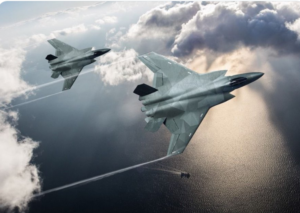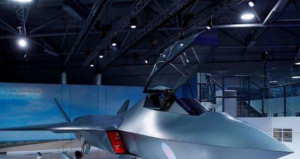Japan’s Evolution: A Shift Towards Defense Independence
On March 15th, Japan’s governing Liberal Democratic Party (LDP) and its ally, Komeito, reached a consensus to ease the nation’s stringent defense export regulations. This move clears the path for Tokyo to potentially authorize the global sale of advanced fighter jets, which are being jointly developed with the United Kingdom and Italy. Given the LDP-led coalition’s dominant presence in both the House of Representatives and the House of Councillors of the current Japanese Diet, their agreement holds legal sway across the country.

This recent development signifies another significant departure from Japan’s post-war stance of strictly adhering to a defense-oriented policy. It follows previous milestones such as the relaxation of restrictions on collective self-defense in 2015 and the landmark decision in 2022 to acquire “counterstrike capabilities,” enabling Japan to retaliate against enemy missile bases in the event of an armed assault.
In essence, nearly 79 years after its defeat in World War II, Japan is undergoing a transformation towards reclaiming the status of a “normal nation” concerning defense and security matters.
Dynamics Behind Japan’s Defense Export Shift
The recent agreement follows extensive and often convoluted negotiations that spanned several months. During these discussions, the traditionally pacifist Komeito had aimed to impose limitations on the export of any lethal weaponry.
In July 2023, Komeito tentatively agreed with the LDP to permit the export of internationally jointly developed defense equipment from Japan to third-party nations, with a specific focus on the next-generation fighter jets. Under the existing regulations, Japan could only export the fighter jets to the countries participating in their production: namely, Britain and Italy.
The passing of Ikeda Daisaku, the esteemed honorary president of the lay Buddhist group Soka Gakkai and founder of Komeito as a peace-oriented political entity in 1964, in November 2023, prompted Komeito to revisit its foundational principles as a party advocating for peace. This shift complicated negotiations with the LDP.
 Prime Minister Kishida Fumio, speaking in parliamentary sessions this month, outlined three reasons necessitating the relaxation of export regulations. Firstly, it would serve to decrease production costs for the Global Combat Air Program (GCAP), a joint endeavor between Japan, Italy, and the U.K. aimed at developing a next-generation fighter by 2035. Secondly, Kishida emphasized that permitting defense exports would bolster Japan’s national security. Lastly, it would ensure Japan’s recognition as a dependable partner in international defense joint development initiatives.
Prime Minister Kishida Fumio, speaking in parliamentary sessions this month, outlined three reasons necessitating the relaxation of export regulations. Firstly, it would serve to decrease production costs for the Global Combat Air Program (GCAP), a joint endeavor between Japan, Italy, and the U.K. aimed at developing a next-generation fighter by 2035. Secondly, Kishida emphasized that permitting defense exports would bolster Japan’s national security. Lastly, it would ensure Japan’s recognition as a dependable partner in international defense joint development initiatives.
Strategic Imperatives: Japan’s Drive for Defense Independence
There is an additional underlying motivation, although Prime Minister Kishida has not publicly addressed it: The development of the next-generation fighter jet represents a rare instance of a significant Japanese defense project conducted in collaboration with countries other than the United States. This initiative aims to mitigate Japan’s excessive reliance on the United States for defense equipment procurement and to cultivate its own defense industry. Such efforts become particularly crucial in the event of a potential second term for former President Donald Trump, who advocates for an “America First” approach, which could impact defense cooperation.
Defense Minister Kihara Minoru has also highlighted the advantages of joint fighter development, including the sharing of technology, reduction of development costs and the associated risks of failure, and the potential to lower unit prices through increased production volume.
Initially, the Kishida administration aimed to relax Japan’s stringent defense equipment transfer regulations not only for the next generation of fighter jets but for all defense equipment developed through international collaboration. However, this proposal faced staunch opposition from Komeito, leading to its abandonment.
During a visit to Tokyo in December 2023, British Defense Minister Grant Shapps emphasized the necessity of revising the Three Principles of Defense Equipment Transfer for the success of the Global Combat Air Program (GCAP). Additionally, a British company cautioned Komeito members, highlighting that blocking exports of the next-generation fighter jet to third countries could damage the project’s international reputation.











Comments 1